By Corrie Pikul
Bring this shopping list with you to pick up some of the ingredients for a more-content life.
Hidden Sunshine
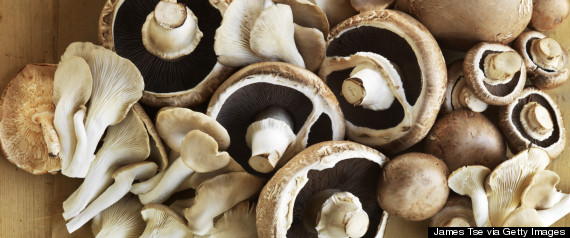
Mushrooms are probably the last place you'd think to look for vitamin D, the wonder vitamin (low levels of which, separate studies have shown, are linked to depression, chronic pain, headaches and heart disease). Vitamin D is considered a key nutrient for mental and physical well-being, and mushrooms, like humans, synthesize vitamin D when they spend time in the sun (more than you'd find even in supplements!). You can now buy mushrooms in the supermarket that have been grown in UV light. Look for varieties like these from Monterey.
Whipped Gold
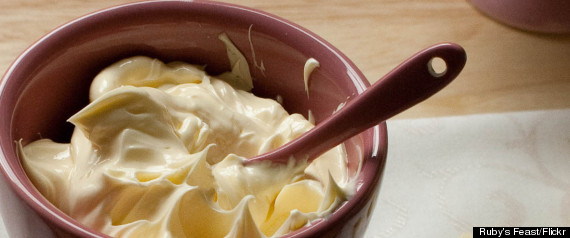
Butter really does make everything better—but it has a whopping 100 calories and 7 grams of saturated fat per tablespoon. The solution: Real whipped butter. It's not only lighter and less calorie-dense, but it's also smoother and more luscious. And…like regular butter, it lacks the nefarious trans fats you'll find in many brands of margarine that have been connected to irritability and aggression, found researchers at the University of California at San Diego (the theory is that trans fats may inhibit absorption of healthy omega-3 fats, which are known to have a mood-calming effect).
Miracle Oils
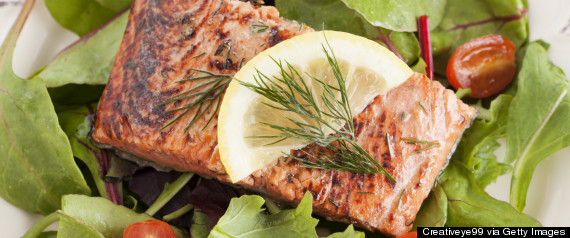
Multiple studies have found a connection between people with depression and low levels of omega-3 fatty acids, so this is one food you don't want to skimp on. The best sources, as you know, are fish like wild salmon, mackerel, trout and arctic char. But if you're not a fish person, you can supplement with flaxseed oil in smoothies, pancake batter, salad dressings and oatmeal (Dr. Oz's preferred use).
Mood Legumes
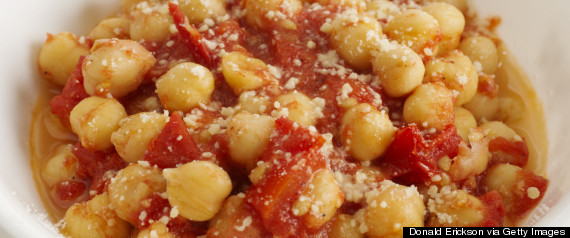
You may think of chickpeas as a cheap, easy, protein-packed alternative to meat, but they’re also great sources of vitamin B6, one of the B vitamins that is essential to cognitive development and a healthy brain. The reason? B6 helps synthesize neurotransmitters that influence mood, and melatonin, which regulates your internal clock.
Uplifting Greens
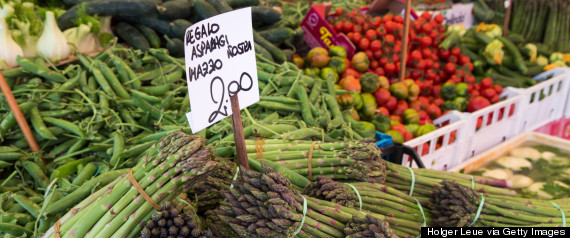
Dark-green leafy vegetables like spinach, asparagus and Brussels sprouts are all off the charts in folate, which you probably knew, but this B vitamin may also help reduce symptoms of depression, which may be pleasantly surprising news. Researchers in New Zealand found that when people ate more fruits and vegetables, they reported feeling calmer, happier and more energetic than usual (and the study authors, publishing in British Journal of Health Psychology, were able to determine that eating produce came before the happy moods, not the other way around). They recommend aiming for seven to eight combined servings of fruits and vegetables every day.
Seeds of Contentment
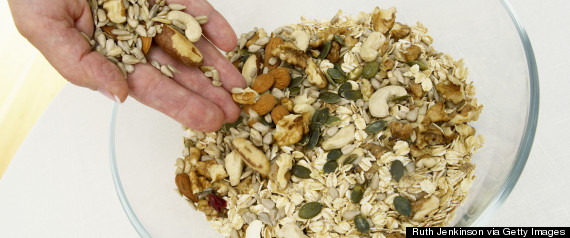
Of all the ingredients in your granola, pumpkin seeds are probably the most underrated, especially when it comes to their mood-boosting benefits. Packed into each tiny seed are tryptophan (an amino acid that aids in the production of serotonin), iron (an important nutrient for wellness and immunity) and magnesium. That last one is especially interesting: One recent study found that people who regularly got enough magnesium (the RDA for women is 320 milligrams, or about a half-cup of pumpkin seeds) were less likely to be depressed than those students who fell far short of the dietary recommendations.
As a reminder, always consult your doctor for medical advice and treatment before starting any program.
